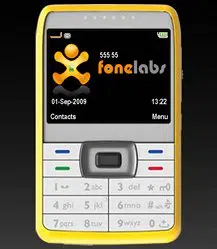The Malaysian manufacturer’s NFC phones come with a built-in NFC antenna and controller as standard and are expected to cost under US$100 each in volume.

Malaysian phone manufacturer Fonelabs is to begin mass production of its X-Series NFC phones by the end of December and expects to sell in excess of two million units in 2010, the company’s CEO Herve Jegou has told NFCW.
All Fonelabs phones come equipped as standard with a near field communication antenna and controller and have the ability to perform peer-to-peer and tag reading functions out of the box. A secure element can then be added to the phones via a microSD card so that payments and transport applications can also be supported. Once the company switches to using NXP’s Single Wire Protocol compliant PN544 NFC controller at the end of February 2010, it will also be possible to enable payments and other secure applications via an NFC SIM too.
Pricing for NFC application and service providers looking for volumes in the hundreds or thousands of units will be around US$120 per unit, depending on the market, says Jegou. The addition of a secure microSD card to enable secure transactions will cost an additional US$15 for a 1GB card with SmartMX, supporting Mifare ticketing applications, for example.
During 2010 Fonelabs aims to reduce the unit price to under US$100 and, for large scale deployments, the price could drop further still.
The majority of phones produced in 2010 will not make use of an added secure element, however, Jegou told NFCW. The X-Series phones also feature a BlackBerry-like unified messaging system developed for low bandwidth markets. This, says Jegou, is the feature that is currently causing most interest amongst Asian mobile operators, with 70% to 80% of the phones produced this year expected to be sold on the basis of the device’s messaging capabilities rather than its NFC functionality.
That said, says Jegou, “this is a way for us to also address the ‘chicken and egg’ issue of NFC and build a base of terminals which can then make launching NFC application easier. We are committed to NFC in the long term and are working with a number of partners looking to run pilots in Malaysian universities during 2010.”
Next: Visit the NFCW Expo to find new suppliers and solutions
I would like to have an email contact to Fonelabs to discuss if their phones support all 4 NFC Forum tag types.
Hi David,
Try [email protected] — and other contact details for Fonelabs are here.